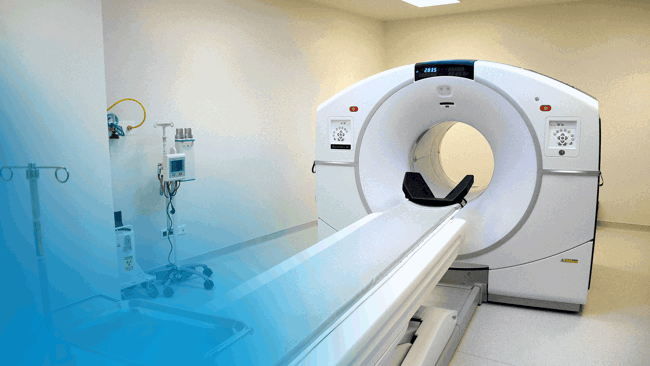
New Nuclear Medicine Laboratories at the University Hospitals of Alexandroupoli, Ioannina, Larissa, and Heraklion are in preliminary operational use and will soon cover the needs of thousands of patients across Greece. The procurement and installation of PET-CT (positron emission tomography-computed tomography) scanners, as well as necessary remodeling of the Laboratories at the four hospitals, was carried out through a grant from SNF as part of its $750 million-plus Global Health Initiative (GHI).
Positron emission tomography is a type of imaging examination used to identify a variety of conditions, such as cancer, heart disease, and brain disorders, before they show up in other imaging tests. By ensuring access to specialized examinations and treatments for patients who would otherwise have to travel to Athens or Thessaloniki to receive the services they need, this development helps increase access to quality care across Greece.
The PET-CT equipment was delivered to all four hospitals in fall 2022. Preliminary checks, equipment testing, and training for hospital medical and nursing staff are currently wrapping up. The Greek state has undertaken responsibility for staffing the relevant departments and operating the equipment, as well as for the maintenance costs after the two-year warranty period. Since the beginning of the grant, the project has been carried out in close collaboration between SNF, the four hospitals, and the Hellenic Ministry of Health. On Wednesday, March 22, the Nuclear Medicine Laboratory at the University General Hospital of Alexandroupoli was inaugurated in the presence of Deputy Minister of Health Mina Gaga, Director for the 4th Regional Health Authority Dimitrios Tsalikakis, Hospital Director Evangelos Roufos, doctors and nurses, representatives of associations of cancer patients, and representatives from SNF.
SNF Co-President Andreas Dracopoulos said, “Our grant for the supply and installation of PET-CT scanners at four University Hospitals in Greece’s geographic peripheries reflects the broader philosophy of SNF’s major ongoing Global Health Initiative (GHI), which places equal emphasis on enhancing access to quality health services in both large urban centers and smaller outlying communities. Our intention is to help upgrade the health system and consequently the quality of life for all residents, even those in the most remote regions of the country, always to the extent of our capabilities. Just as diseases do not discriminate, there should be no discrimination in health care based on the patient’s place of residence or financial capacity.”
In the near future, similar inauguration events will take place at the University Hospitals of Ioannina, Larissa, and Heraklion.
This grant is part of SNF’s Global Health Initiative (GHI), which is the largest single initiative in the history of the Foundation. It includes, but is not limited to, the design, construction and outfitting of three new hospitals in Komotini, Thessaloniki, and Sparta; the procurement of specialized medical equipment, such as new aircraft for the National Center for Emergency Care’s (EKAV) air ambulance services; educational programs for health professionals; the Child and Adolescent Mental Health Initiative (CAMHI) in Greece; and partnerships with leading international organizations to strengthen public health around the world. Recently also announced as part of the initiative was the establishment of the SNF Institute for Global Infectious Disease Research at The Rockefeller University in New York.

